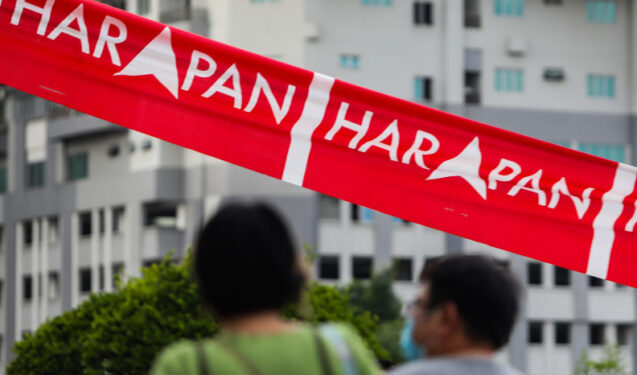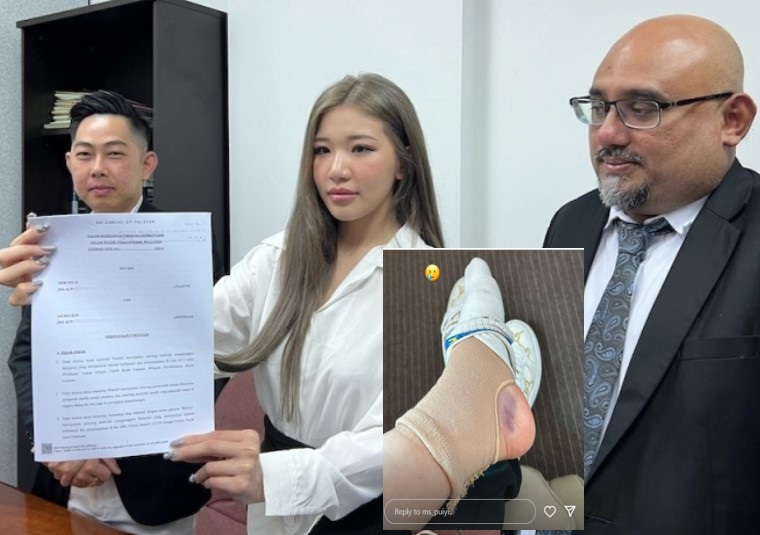By National House Buyers Association
ONE of the amendments to the Housing Development (Control & Licensing) Act, 1966 (Act 118) (“HDA”) which took effect on June 1, 2015, namely Section 3 of the Interpretation extends the definition of ‘housing developer’ to include ‘a person or body appointed by a court of competent jurisdiction to be the provisional liquidator or liquidator for the housing developer’.
The amendment to include a liquidator as a “housing developer” was intended to fill the void when a developer is wound up before completion of its duties and contractual obligations under Act 118.
By duties, it means such as completing construction of the buildings or facilities, deliver vacant possession or applying for individual or strata titles, thus leaving the purchasers in a lurch.
As a result of the said amendment, a liquidator will be subjected to the duties and responsibilities imposed by Act 118 and may be liable for breach of duties of a “de facto housing developer”.
In theory, a liquidator should not be allowed to charge or impose any additional administrative fees when carrying out his duties (since he is assuming the affairs and responsibility of the defunct developer) contracted in the sale and purchase agreement.
For example, functions which are part and parcel of a developer’s duty such as updating the record of ownership and perfecting the transfer to a purchaser when a separate individual or strata title is issued, issuing written confirmation of particulars (for sub-sale) under Act 118.
“Rein in” and regulate liquidator’s conduct and fees
The reality is that liquidators who are appointed to manage the affairs of a defunct developer are charging an “administration fee” of between 2% and 3% of the original purchase price or the sale price in a sub-sale for performing these functions of a developer.
In some cases, there are also additional charges tagged as “vetting fees” for the liquidator’s solicitors to vet the forms and documents.
The irony of the situation is that although payment is made to the liquidator for these so-called vetting, verification and retrieval of documents, it is the purchaser who has to furnish all the documentary proofs of ownership, loan contracts, repayment receipts, statements and whole list of documents to prove their ownership before the liquidator “graciously” co-operates.
This process of loading the proof of documents on the owner can be unreasonable as some would lost their documents, cannot locate the originals and for the elderly purchasers, they may not have the mobility to undertake this exercise though they may have resided in the premises for umpteen years.
On top of that, aggrieved owners are made to affirm a statutory declaration (before a Commissioner for Oaths) swearing the truth and nothing but the truth to vouch for their ownership.
The liquidators will make the owners pay for their lawyer’s professional fees too. Only people who have gone through the process would know the amount of monies and paper trail involved in a situation of dealing with liquidators who proudly espouse themselves as “Officers of the Court”, albeit being appointed under a winding up petition.
There are currently, and for many years to the detriment of the aggrieved purchaser/owner, no guidelines to regulate the arbitrary imposition of these “charges” and “fees” by the liquidators.
The affected purchaser/ owner has no choice in such appointment and is left to a game of chance that the appointed liquidator will act in the purchaser’s/ owner’s best interests and not further aggravate the latter’s suffering.
The purchaser is at the mercy of the appointed liquidator where each liquidator is like a “little Napoléon” of a particular housing development.
The irony is that Section 22D of Act 118 clearly states that a fee of not exceeding RM50 may be imposed for a written confirmation of the record of the beneficial owner of the property in the housing development and consent for the assignment.
Why then are liquidators granted special treatment by having their charges/fees grossly inflated from RM50 to between 2% and 3% of the purchase price?
Well, the liquidators will argue that the RM50 entails limited to “written confirmation” as compared to the other job requirements.
Liquidators are supposed to be “officers of the court” and appointed to carry out their duties judiciously but there are no set criteria or qualifications for a liquidator to meet before they can be appointed to manage a wound-up development company or to give any obligation to comply with Act 118.
Was there a lacuna in the law that has been unearthed? Was there an “oversight” made by the drafters of the law, resulting in laws not being able to enforce hence the perpetuation of the current status quo? No liquidator has been punished by the Housing and Local Government Ministry because they are no “mekanisma” (Malay word for mechanism). There are no housing development regulations to regulate the liquidator’s conduct and fees.
Scope, role and remuneration of liquidators
National House Buyers Association (HBA) has reminded the minister and her team numerous times on the need to rein in the conduct of those so-called court appointed officers namely liquidators as ‘de facto developers’.
This is legally possible as the definition of a housing developer and a licensed housing developer under Act 118 do include a liquidator. Therefore, the liquidator is already a “de facto developer” under the law since the amendment of the definition in 1988, 2002 and 2015.
For the ministry, esteemed minister and its slew of officers to keep mouthing “tidak ada mekanisma” does not hold water and is mere indolence and incompetence on the part of the former.
The National Housing Board (JPN) and Department of Insolvency (JIM) have received numerous complaints against errant liquidators, receivers & managers (R&M) ranging from exorbitant fees allegedly couched as vetting fees, ranging from 2% calculated on the market value of the property on dealings to voluminous conditions.
JPN has assured us that a new set of regulations will be formulated to cover the scope, role and remuneration scale. The aim of the new regulations is to regulate the conduct of liquidators, Judicial Managers and R&M with emphasis on curbing dysfunctional acts, penalties for non-compliance, investigation, enquiries and criminal prosecution among others.
This regulation should be expeditiously formulated and enforced as the purchasers/owners have been affected and continue to be affected by the irresponsible and arbitrary acts of the liquidators.
In the context of an abandoned housing project, the liquidator could play a parallel role of stepping into the shoes of a wound-up developer as a “de facto developer” and revive the project within the legal provisions stated in Act 118 and its regulations. This would be to protect the interests of the purchasers of an abandoned housing project.
It is clear under Act 118 that the liquidator can play an important role as the liquidator of a wound-up developer. As we have stated, Act 118 was amended to include a liquidator into the definition of the “housing developer” in the event the housing developer is in liquidation.
Nonetheless, the underlying rationale and practice is that it is common for liquidators to be appointed for wound-up developers and to then attempt a revival of the abandoned project.
We may require legislation to further clarify the duties and powers of and to regulate the liquidator under Act 118.
Conclusion
HBA fully understands and appreciates the vital role played by the ministry and the housing industry in the fabric of the nation’s social and economic development. This is one industry and ministry that is the most closely connected to the nation’s heartbeat.
A roof over one’s head is one of the most basic need of life next to food, water and air. That is why HBA strongly feels that more should be done now to improve and overcome the prevalent weaknesses afflicting the housing ministry and industry. – May 22, 2021
National House Buyers Association (HBA) is a non-governmental, non-political and not-for-profit organisation manned purely by volunteers.
The views expressed are solely of the author and do not necessarily reflect those of Focus Malaysia.










